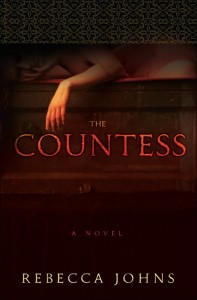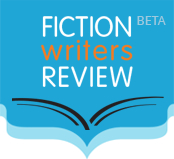Hello, blog readers! In case you’ve missed any of FWR’s features so far in 2011, here’s a quick recap, complete with tasty excerpts:
– In her interview with novelist Tracy Chevalier (Remarkable Creatures, Girl with a Pearl Earring), Felicity Librie uncovers how research fuels the process of character development, how the past sheds light on our present moment, and why Chevalier will never tire of getting lost on a journey of discovery.
From author's website
TRACY CHAVALIER: I put the story first, and the characters. The history always has to be secondary. I don’t want to be a teacher, I want to be a storyteller, and I want to prop up what I write with something that’s going to give it validity. That’s where the history comes in. I wasn’t a history major; I wasn’t that interested in history until I was in my thirties, and even now, I’m only interested in history when I’m writing a book. I’m interested in that era and I want to read everything about it, find out about it, sort through all the junk to find the little glittering things that are going to work. That sorting gives me the confidence to set something during a particular period. It makes me know, when a character walks into the house, what the dimensions of the rooms are, what she’s wearing, what she’ll do when she comes in—does she take off a hat and gloves, what kind of shoes does she have, what’s she going to eat? When I’m writing books I tend to see history not as about who’s prime minister or president at the time, but more about what people’s everyday lives were like, and how they differed from ours.
– Editor Jeremiah Chamberlin writes an appreciation of the work of his former teacher and mentor, Charles Baxter, on the occasion of the publication of his new book, Gryphon: New and Selected Stories.
This nod to the storytelling qualities of these stories—an awarenesss that they are being told, that there is a reader—was another element I tried to take away as an apprentice. Specifically, the generosity that this act implies. Because it’s a humble position to take as a writer: that the reader matters as much as you do, that you’re partners in this enterprise, that you’re working collaboratively to evoke these worlds, to simultaneously—both of you—create the fictional universe from shared belief and trust. When I first heard Charlie read, I’d mistakenly attributed his skill to showmanship—the author as literary hypnotist and his reader as willing audience volunteer. Yet I realized as I was re-reading some of the older stories in this new collection for the first time in, often, a decade, that what had actually gone on was a different kind of magic: by treating his reader with the same level of respect and care that he has for the lives of his characters, Baxter actually allows us to participate in the process.
Click here to read the whole piece…
– Lily King’s three novels stand as testaments to the power and endless variation of familial relationships, and her latest novel, Father of the Rain, tells the story of a daughter’s life-long, primal loyalty to her charming and manipulative father. In this interview with King, Contributing Editor Joshua Bodwell discusses longhand, autobiographical influence, puppies, and how to depict realistic sex, with a writer whose work remains “a beacon of tenderness and sincerity.”
via author website
LILY KING: My mother recently quoted Padgett Powell as saying: “I take everything I know, then lie about it.” I have searched the Internet and can’t find this line anywhere, but I think it sums up the process pretty well. For me writing is like dreaming, elements from life come in but they are jumbled and distorted. It’s the fictional possibilities that light everything on fire for me. When I try to write straight memoir, it feels dead. The only thing that’s still alive is the emotion. So all my novels have a lot of emotional truth, emotions, but not necessarily situations, I have experienced, and in entirely different contexts. Though Father of the Rain begins in autobiographical territory for me—summer of 1974, small town Massachusetts, parents divorcing—it departs from my actual experiences pretty quickly, and by the end of the novel the trajectory that the narrator Daley’s life has taken is very different from mine.
Click here to read the whole interview with King…
– Laura Valeri reviews The Countess by Rebecca Johns. Its subject, Erzsbet Bathory, gained immortal fame as one of the first female serial killers; known as the “Bloody Countess,” she was accused of brutally torturing and murdering over six-hundred young women. But was she really an unrepentant, psychopathic murderer—or simply a political obstacle to the king? Was she really bathing in the blood of her victims, or was she herself the victim of a witch hunt? Such questions haunt the pages of The Countess a lively historical novel that reconstructs the complexity of this 17th century scandal and brings alive the woman behind the myth.
When I picked up The Countess, I didn’t know what to expect. I read mostly literary fiction, so I wasn’t looking forward or hoping for a Gothic tale. I knew Johns’s work from her debut, Icebergs, a quiet novel about ordinary people’s struggles to overcome the extraordinary emotional damages of war. I had been so impressed with that novel’s understated emotional power that I decided to give Johns’s vision of the evil countess a try. From the moment I started reading, I couldn’t stop. This fictional historical memoir drew me in with a voice irresistible for its clarity, intelligence and modern subtlety. Hardly the truculent blood-lusty pervert, Countess Bathory comes across as an intelligent woman who from a young age understands too well the responsibilities laid on her shoulders: to not only preserve the family’s name and riches, but to care for her youngest siblings against political turmoil, war, and shifting political allegiances.
Click here to read the whole review of The Countess…
***
This month we’ve also been thrilled to feature the following novels and collections as Book of the Week selections: Elegies for the Brokenhearted by Christie Hodgen, In a Strange Room by Damon Galgut, Gryphon: New and Selected Stories by Charles Baxter, and our current selection, Flowing in the Gossamer Fold by Ben Spivey. For a chance to win a signed copy of Spivey’s book (and all future BotWs), become our fan on Facebook.
Want to know right away when FWR posts new reviews, essays, interviews, and blog posts? Subscribe to our RSS feed, or follow us on Twitter.






